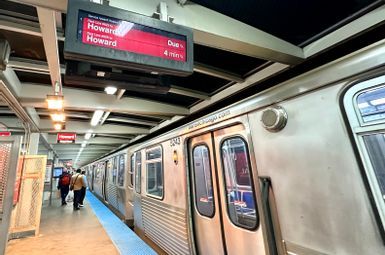
Research led by the University of Michigan arrived at a surprisingly unsurprising result while assessing the sustainability gap between public transit and services like Uber and Lyft.

Advancing sustainability is not just a technical process. Enacting bold, proactive public policies is crucial, and University of Michigan researchers are leading efforts to enable societies to adopt renewable energy sources, protect public lands and endangered species, and empower local communities. Initiatives like the Center for Local, State and Urban Policy, the Urban Collaboratory, and the Urban Energy Justice Lab work to highlight scalable and equitable approaches.

Research led by the University of Michigan arrived at a surprisingly unsurprising result while assessing the sustainability gap between public transit and services like Uber and Lyft.

Research led by the University of Michigan shows that communities of color in Texas face pronounced risks of E. coli exposure in nearby waters after intense rain.

To combat climate change, the world needs to pivot away from fossil fuels. But building battery electric vehicles and infrastructure for renewable energy will require enormous amounts of minerals and resources.
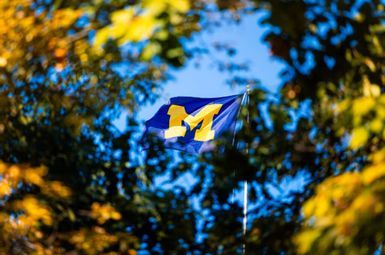
The Mellon Foundation has awarded nearly $4 million in a first-of-its kind grant to bolster the University of Michigan’s leading work in environmental justice.
A new study authored by University of Michigan highlights the opportunity for animal tracking data to help usher in a new era of conservation.

Not all of us can afford to wear the latest styles fresh from the world’s maisons, so we often turn to fast-fashion retailers in order to participate in aesthetic trends. But our planet cannot sustain these habits, which cause an enormous amount of textile waste that unfairly burdens communities in the global South and actively harms the environment.
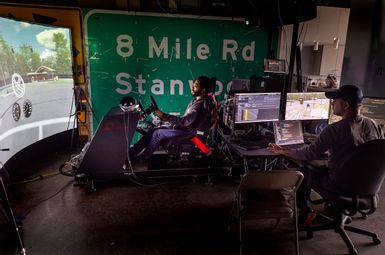
As Mcity begins welcoming researchers in autonomous and connected vehicle technologies from around the U.S. to be remote users of its physical and virtual testing environment, its leadership is calling for federal standards for safety testing, arguing that the lack of clear goalposts is hampering development.
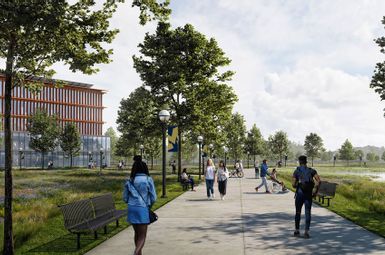
At the core of Campus Plan 2050 is a commitment to sustainability. The initiative proposes innovative infrastructure solutions, including geo-exchange systems designed for efficient heating and cooling through ground-source heat pumps, as well as extensive building retrofits that enhance energy efficiency and sustainability, and efficiency upgrades to the transit system.
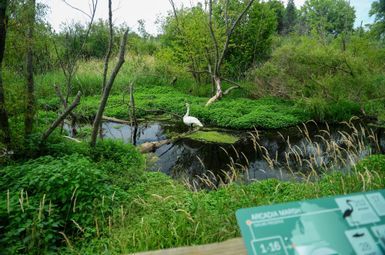
Along M-22 in northwestern Michigan, people with mobility challenges can access breathtaking views of Lake Michigan from a 300-foot-high platform, explore rare birds and plants in a restored marsh or lose themselves in coastal dunes and forests once off-limits.
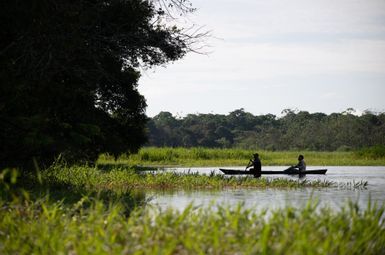
Hundreds of terrestrial and aquatic animal species live in the Boca do Mamirauá Reserve, located in the upper reaches of the Amazon, at the confluence of the Solimões and Japurá rivers. It is the first destination of the U-M Pantanal Partnership students this year.

The University of Michigan Center for Sustainable Systems (CSS) and U-M's Naval Architecture and Marine Engineering have been awarded a $199,993 grant from the State of Michigan to develop a Michigan maritime strategy focused on climate action.
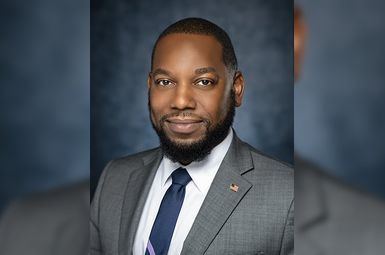
"Energy justice is this concept that really looks at how do communities participate in both the health environment and social impacts of our energy system, recognizing that the energy system has had certain burdens on communities. And so environmental justice is really saying that all communities, regardless of race and income and geography, should be afforded a clean environment."

The pathway to improving the health of hundreds of thousands of residents in Michigan’s largest cities is laid out in a new information hub that provides a panoramic look at the major factors impacting the wellbeing of these individuals.
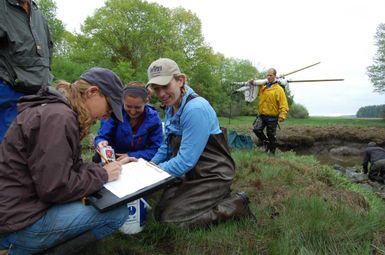
U-M has received a $25 million grant from the National Oceanic and Atmospheric Administration to support collaborative research initiatives addressing critical environmental challenges in U.S. coastal communities.
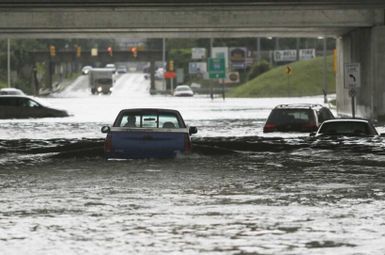
Massive 2014 flooding event in southeast Michigan showed why systems thinking beats local thinking in flood protection.
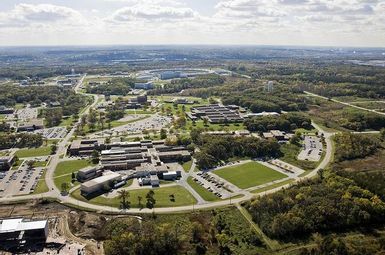
Maximizing the benefits of clean energy requires new ways to store it, and U-M engineers will partner in a new research hub created by the U.S Department of Energy (DOE), designed to develop and further battery innovations.
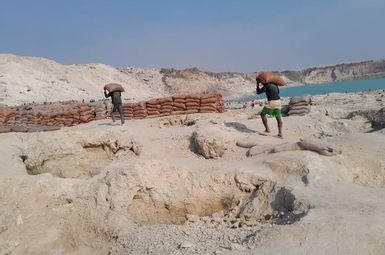
Artisanal and small-scale mining plays a critical role in supplying the world with minerals vital for decarbonization, but this kind of mining typically lacks regulation and can be socially and environmentally harmful.
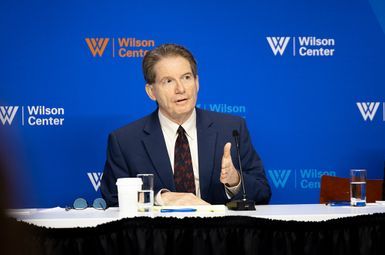
Despite ongoing geopolitical tensions, the United States and China have the opportunity to collaborate on reducing methane emissions, a critical greenhouse gas significantly contributing to about 30 percent of global warming.
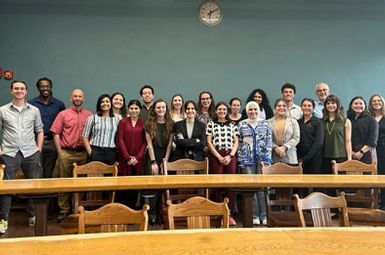
In collaboration with the Michigan Climate Action Network (MiCAN) and Michigan Environmental Justice Coalition (MEJC), a group of 20 selected U-M graduate students recently published a comprehensive report about Michigan’s public power options.
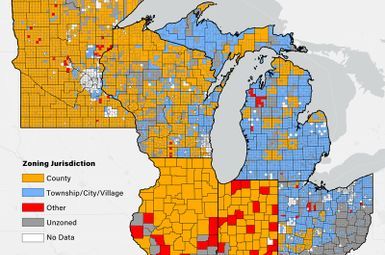
The Center for EmPowering Communities, with funding from the U.S. Department of Energy Solar Energy Technologies Office and the Michigan Department for Environment, Great Lakes, and Energy, has expanded its pioneering renewable energy zoning database to detail solar zoning regulations across the Great Lakes region.

Each year, hundreds of thousands of Michigan parents worry whether they can afford to feed their children. Increased food prices, the state’s housing crisis, and the end of COVID-era financial support have all led to more Michigan families experiencing food insecurity today than before the pandemic.
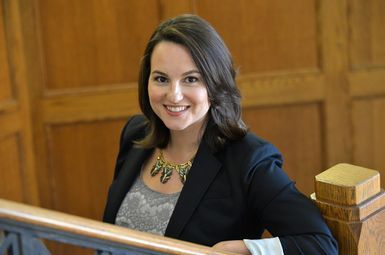
As climate-induced migration increases in the U.S. and elsewhere around the world, what are the potential policies to help communities adapt and support residents? In a new Core Conversations podcast, Kaitlin Raimi explores how Americans view climate migrants, how policies could become a crucial factor influencing climate migration, and what the broader impacts of migration may mean for American society and the economy.
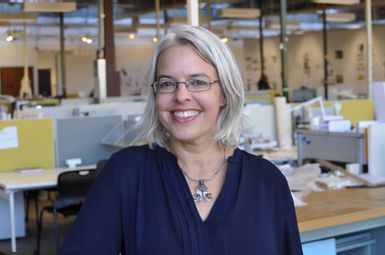
Urban agriculture can support cities’ wider goals and provide residents with self-grown, nutritious food if more governments start supporting – instead of criminalizing – the practice, Taubman College faculty member Lesli Hoey argues in a new book.
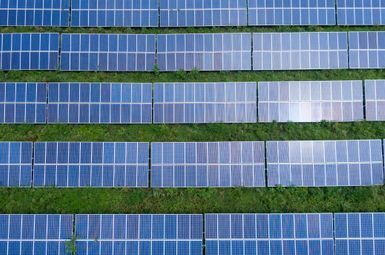
The percentage of Michigan local governments that say they have or are considering renewable energy goals has doubled since 2019. Local officials also report that a variety of energy issues, such as energy infrastructure zoning and planning for electric vehicles, are more relevant to their communities than they were four years ago, and the tone of local policy discussions regarding zoning for renewable energy infrastructure is generally seen as constructive.
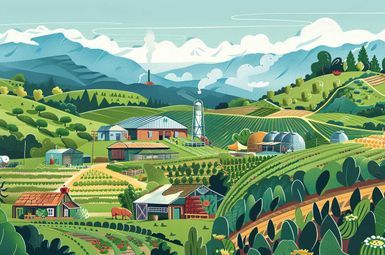
Faced with an ecological crisis, public health emergencies and socioeconomic inequities, agroecology emerges as a transdisciplinary beacon of hope.
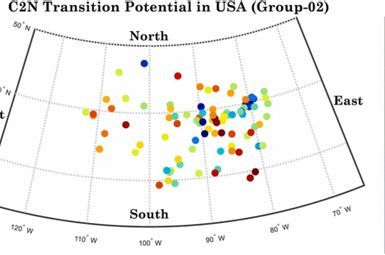
An assessment ranks the feasibility of converting 245 operational coal power plants in the U.S. into advanced nuclear reactors, providing valuable insights for policymakers and utilities to meet decarbonization goals, according to a new study by University of Michigan researchers.

Traffic pollution emerges as a lead exacerbator for ailments that come with aging.

A recent University of Michigan study exposes a gap in sociology: a lack of focus on climate change. Societies fuel and face the consequences of this crisis, but sociology as a discipline appears insufficiently engaged with the issue, says Sofia Hiltner, U-M doctoral candidate in sociology.
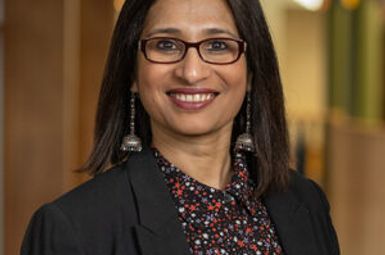
“Clarity on vulnerable subgroups more susceptible to heat-related deaths will enable policymakers to design effective intervention strategies targeted to these subgroups. Downstream, this will ensure greater climate action equity.”

Nestled by the St. Clair River, a small rural neighborhood in St. Clair Township, Michigan, is surrounded by a high concentration of hazardous crude oil and natural gas facilities. For decades, Murphy Drive residents have been exposed to unreported chemical releases, oil spills, poor air quality and harmful odors.
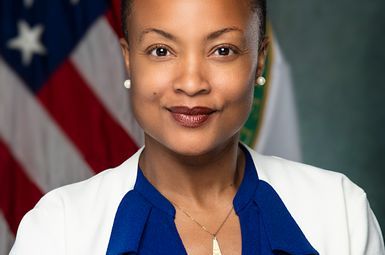
Currently the director of the Office of Energy Justice and Equity and the secretarial adviser on equity at the U.S. Department of Energy, and formerly the department’s chief diversity officer, Baker will advance sustainability education and research across U-M schools and colleges.

A team of scientists, including a U-M aquatic ecologist, is forecasting an above-average summer “dead zone” in the Gulf of Mexico covering about 5,827 square miles—an area roughly the size of Connecticut.
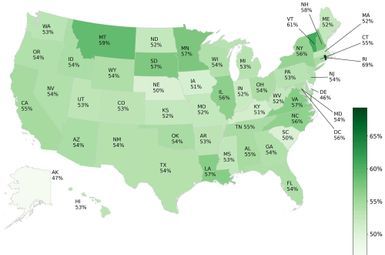
Identifying public concerns and misconceptions about nuclear energy can target efforts to bridge these gaps as nuclear energy will play a large role in goals to decarbonize by 2050, replacing oil and gas as a stable baseload electricity source.
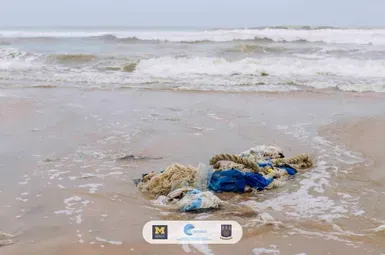
“As people are worried about climate, we shouldn’t forget that a big part of the climate story is the ocean, which stores and transports a lot of heat and carbon.”
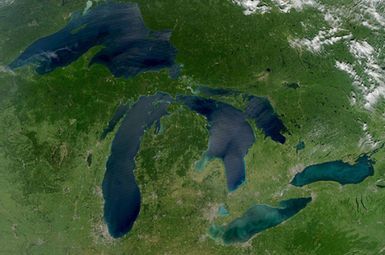
The U.S. National Science Foundation has awarded a three-year, $614,000 grant to U-M and its international partners to create a new research initiative that will address the socioeconomic vulnerabilities of climate migrants in the Lake Victoria Basin (LVB) and Great Lakes Region (GLR).

About a third of the food produced globally each year goes to waste, while approximately 800 million people suffer from hunger, according to the U.N.’s Food and Agriculture Organization.
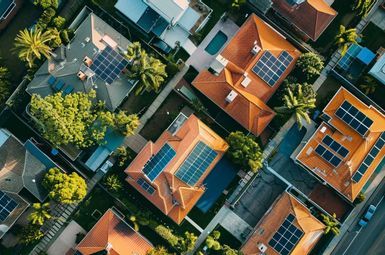
According to a U-M survey, 86% of respondents either strongly or somewhat support adding rooftop solar panels. The survey found some regional variation: Rooftop solar drew support from 83% of leaders in the Upper Peninsula, while garnering 89% support from southeastern Michigan officials.
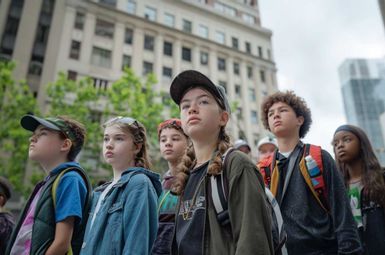
Nearly half of the young people surveyed on disaster preparedness indicated they felt unprepared for any type of disaster event during a period when catastrophic climate disasters are becoming increasingly frequent, says a U-M researcher.
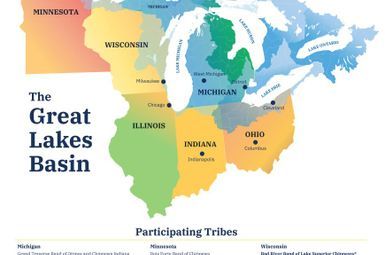
“Given that we sit in the heart of the Great Lakes and 21% of the world’s fresh surface water, we wanted to explore the region’s plans to identify the highest-impact, most innovative and scalable multi-state opportunities. We looked for what was working, to inform ways to accelerate community-based climate action."

Copper cannot be mined quickly enough to keep up with current U.S. policy guidelines to transition the country’s electricity and vehicle infrastructure to renewable energy, according to a U-M study.
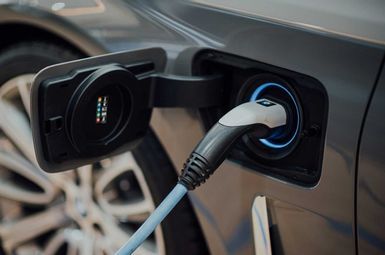
Local officials across Michigan increasingly view electric vehicle infrastructure planning as relevant for their governments, though many cite too few public charging stations and costs associated with adding them as barriers to expansion.
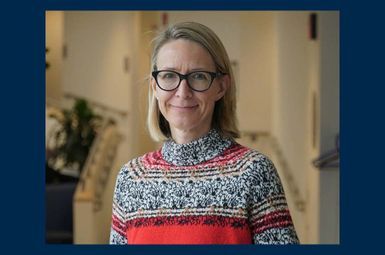
Extreme heat is America’s deadliest weather hazard, killing more people than hurricanes, floods, and tornadoes combined. Yet one obvious solution – increasing access to indoor cooling – is hindered by a lack of reliable data on which households have working air conditioning.
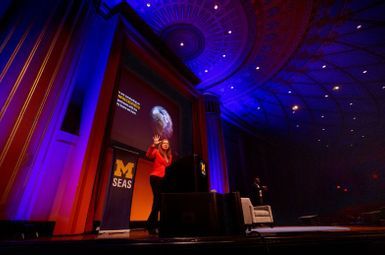
One of the most important things people can do to address climate change is talk about it, climate scientist Katharine Hayhoe said. Citing statistics that two-thirds of people in the United States are worried about climate change, but only 8% are activated to do something about it, Hayhoe said talking about climate change doesn’t mean trying to change the minds of those who believe it is a hoax.
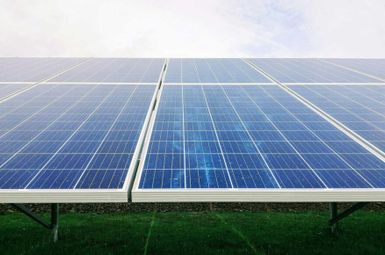
Among residents living within 3 miles of large-scale solar energy developments, positive attitudes about the projects outnumbered negative attitudes by a nearly 3-to-1 margin, according to a new survey of nearly 1,000 large-scale solar neighbors across the United States.

Researchers at U-M’s Rogel Cancer Center want to build a movement to understand how exposures to toxic metals, industrial pollution and “forever chemicals” called PFAS, are impacting the health and cancer risk of residents across Michigan.